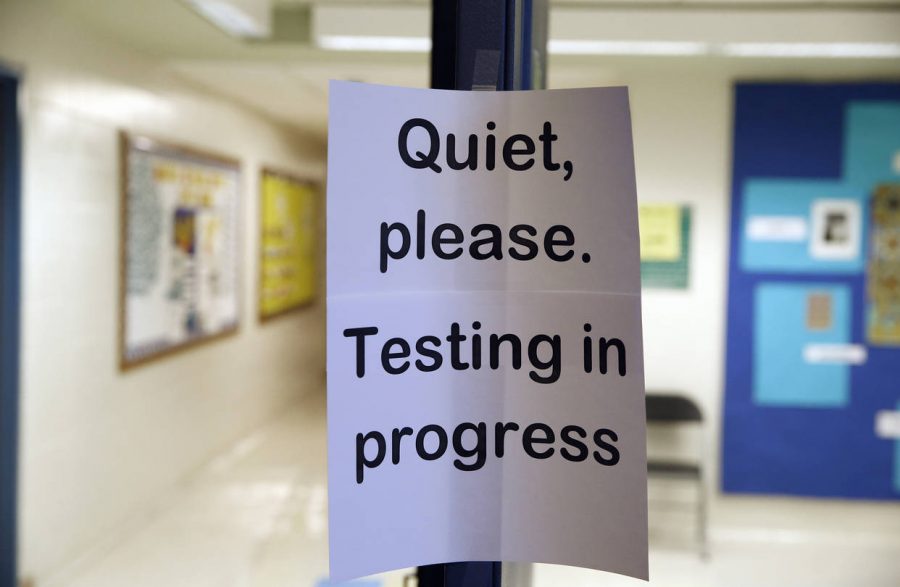College Board Changes Benefit No One Except Themselves
October 15, 2019
Rumors were circulating around last year about the changes the College Board was planning on making to the AP Testing registration process and deadline fees. This year they have confirmed registration will require a class code and will take place through TotalRegistration in the fall rather than spring. More than 120,000 people have signed an online petition asking the company to drop the earlier exam registration deadline and fees. The petition was mailed to the College Board on October 2nd, however College Board has not commented on this matter yet. Other than boosting the College Board’s profits, the recent addition of a $40 late registration and $40 cancellation fee has no advantage for the people that it is supposed to be helping, the students and the early deadline will force or scare away students from taking the exams.
The registration process for AP Exams now requires a class code in order to register for an AP Exam. This means students will have to be enrolled in the class of the exam they want to register for. It is up to schools to decide whether or not they will let students who are not enrolled in the course to take the exam. This causes an inconvenience to students who self-study AP courses; in order to take the exam they would have to find a school near them that offers the exam. This means they would have to travel during school hours to take the exam and return to school after the exam. Travelling in the middle of the day causes students to lose time they could be spending in other classes learning valuable material. It is unfair to make students travel to another school because their school did not provide them with the opportunity to take the AP course in the first place.
College Board claims these changes have already made positive changes in students’ test scores. “In the 2017-18 school year, we piloted fall exam registration with 40,000 students. We saw an increase in scores of 3 or higher across multiple groups. Moving the time of registration made a difference across the board, but it had the strongest effect for students who are traditionally underrepresented in AP” College Board said. While the data presented does show an increase in scores, the data is incomplete and misleading. Total Registration, the exam registration interface partnered with College Board, has conducted an in-depth analysis of the fall exam pilot data College Board released. Of the data they could patch together, they found low-income students’ scores were negatively impacted the most. The analysis conducted by Total Registration showed the failure-rate for low-income students in the pilot exam was 1.6 times greater than the failure-rate of all students at all schools.
Trevor Packer, who has led the AP program at the College Board since 2003, claims the reason for the earlier deadline is to have students commit earlier to taking the exam resulting in better scores.
“The most powerful thing is getting a student who would never have taken an AP class to take one and get a three or better,” he said.
The deadline aims to provide an incentive to have students commit to taking the exam. However, this only has the opposite effect and either scares students away from taking the exam or forces students who are not ready for their exams to take them and earn failing scores to prevent paying the cancellation fee. As a result, this discourages students and makes them less likely to take another AP exam. Furthermore, the late registration fee of $40 leaves students with only a little time to decide whether or not they will take the exam. Rushing them does not give them enough time to decide whether or not they are ready for the exam. Having registration later on in the year allows students to review material from the majority of the course and decide whether they will be able to earn a passing score on the test.
These changes benefit the College Board more than anyone else as they stand to earn millions. Revenue from the AP division increased from $37 million in 2014 to $446 million in 2016, according to tax filings. AP tests are now the College Board’s largest stream of revenue, more than the SAT. With the addition of the $40 fee for late registration or cancellation, their revenue stands to receive an extremely large boost.
College Board’s changes affect many students negatively and low-income students the most. While the data College Board has released supports the new deadline, their data is misleading and thorough analysis shows the opposite. The new cancellation and deadline fees will significantly add to their growing profits, benefiting College Board more than anyone else. Which makes you wonder, whose best interest does College Board have in mind?










